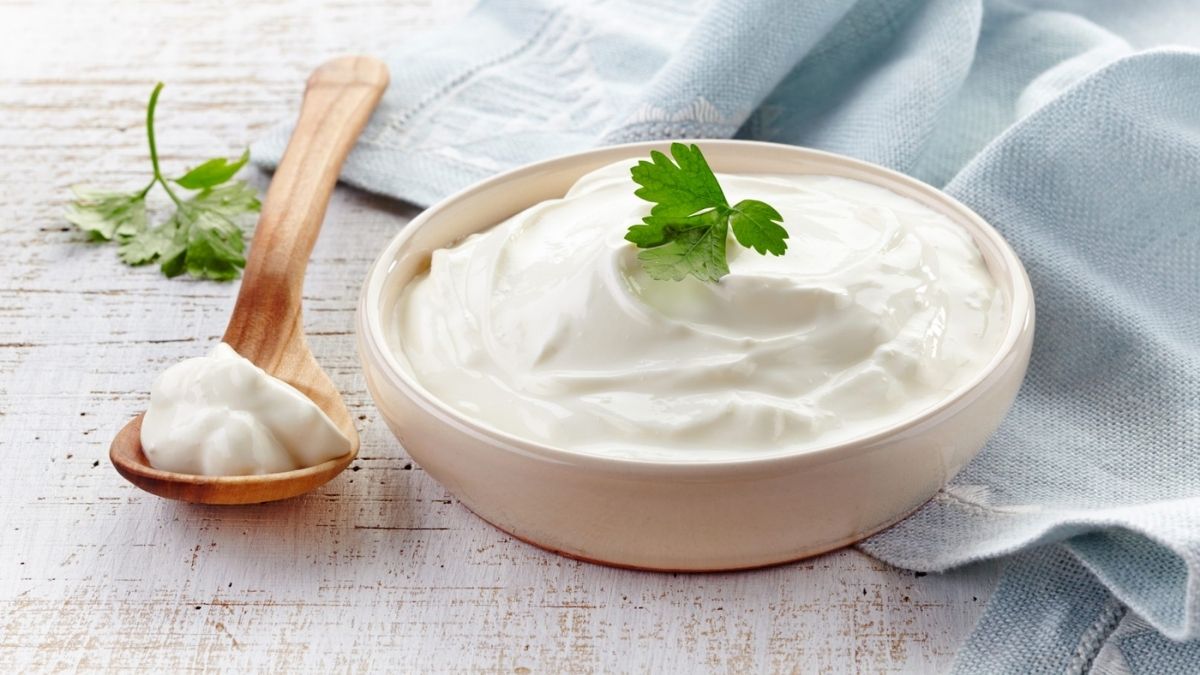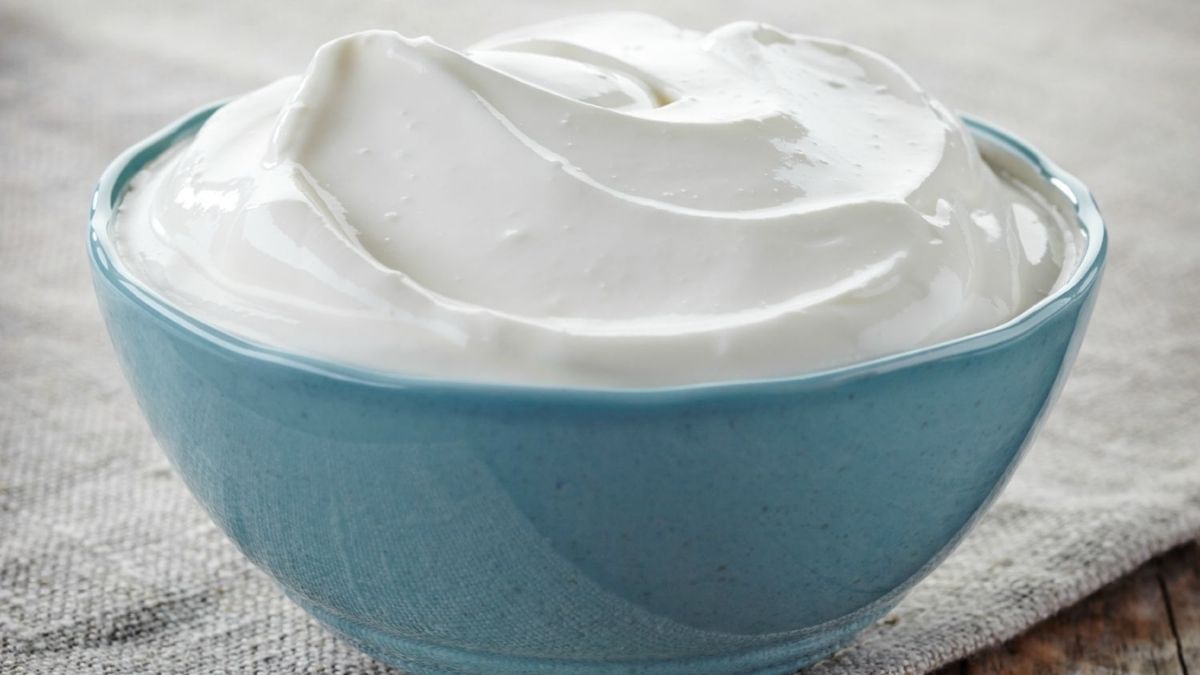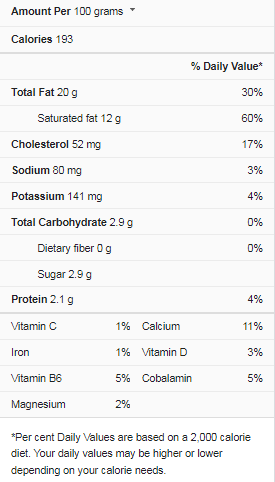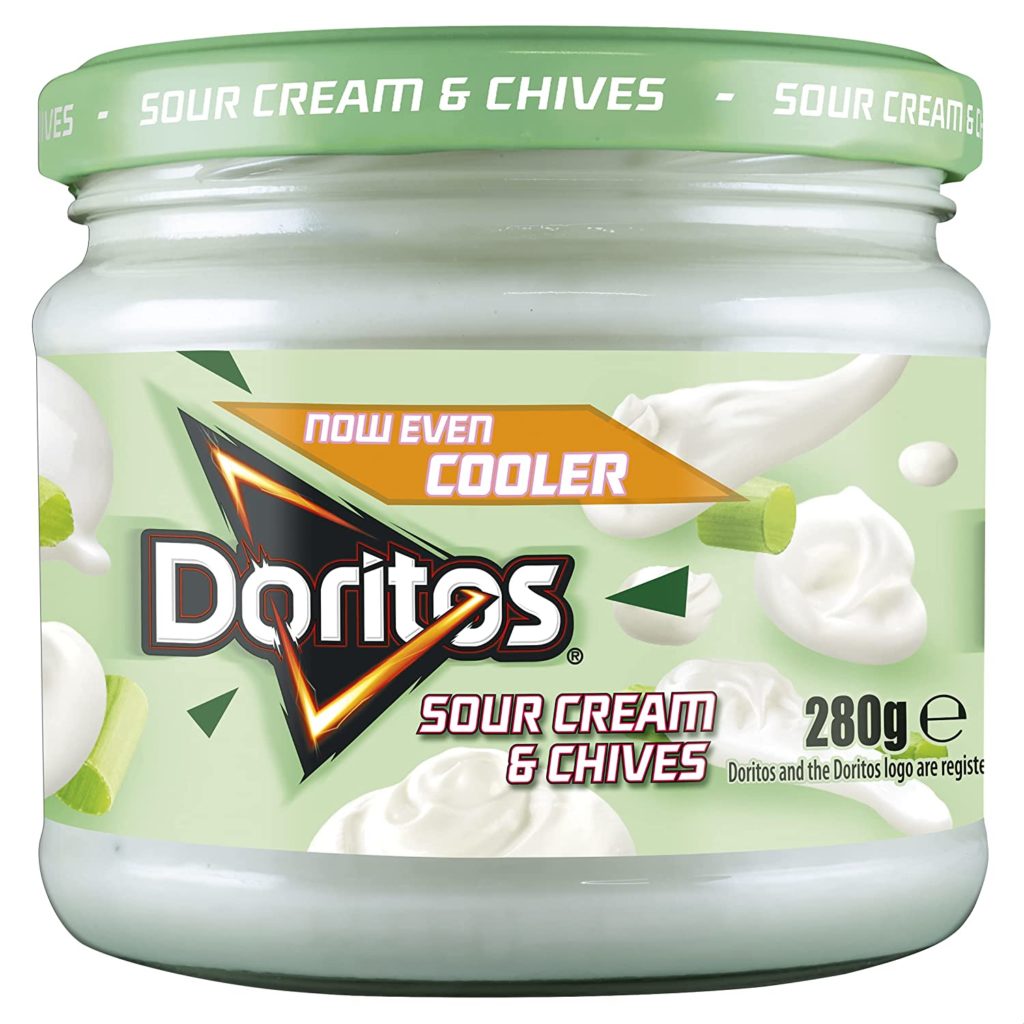Sour cream is formed by lactic acid bacteria digesting cream from dairy milk. This thickening condiment is commonly used to top tacos and baked potatoes and thicken baked dishes, sauces, and stews. Many people, however, are unsure whether it can be incorporated into a healthy diet. We shall examine sour cream’s nutritional facts in more detail in this article, including its calorie count, macronutrient makeup, and vitamins and minerals.
This article will give you the knowledge you need to make knowledgeable judgments about your food choices, whether you want to include sour cream in your diet or are just interested in its health advantages. Because homemade sour cream does not contain artificial thickeners, it may be slightly thinner than store-bought tubbed sour cream. You’ll need three items to produce sour cream: whole milk, cream, and distilled white vinegar or lemon juice. Buttermilk can be substituted for milk and cream.
With a fat level of roughly 20%, sour cream is prepared by combining the cream with a lactic acid culture, which thickens and sours it. Stabilizers, such as gelatin or rennin, may also aid the thickening process. Sour cream is the healthier option for the nutrients of the two items. As shown in the table below, sour cream contains significantly fewer fat and calories than butter in the same serving size. Butter, as previously stated, is made from the fatty portion of cream, whereas sour cream is made from cream.
Sour Cream Nutrition Facts
What Is Sour Cream?
Sour cream is prepared by infusing dairy cream with lactic acid-producing bacteria, resulting in a slightly acidic, dense product. It has long been a part of Eastern and Central European cuisines, and when people immigrated to other nations, it spread west.
Sour cream, also known as soured cream in the United Kingdom, has become a staple in most kitchens worldwide, especially in the United States. For quick dips, sauce thickening, creamy icing, and garnishing baked potatoes and soups. It’s usually used at the end of the cooking process or right before serving, but it can also tenderize and soften baked goods.
What Are The Health Benefits Of Sour Cream?
Sour cream is high in calcium, phosphate, vitamin B12, and other elements beneficial to general health. What it can do for you is as follows.
1. It Helps Protect Your Bones and Teeth
This dairy dish is high in calcium and phosphorus, which help maintain strong bones and teeth. According to the National Institutes of Health, calcium strengthens the bones and may help prevent osteoporosis and fractures (NIH).
According to the US National Library of Medicine, phosphorus, the second most prevalent mineral in the human body, aids bone growth, energy production, and protein synthesis.
2. It Helps Prevent Vitamin B12 Deficiency
Sour cream’s high vitamin B12 content is one of its most essential health benefits. The vitamin, which is only found in animal foods (and fortified plant-based diets), aids in DNA synthesis and blood cell production. According to the National Institutes of Health, it is also essential for brain function.
B12 is required to metabolize protein, enzymes, and other nutrients. According to the National Center for Biotechnology Information, low levels can cause hunger, weariness, constipation, depression, nervous system damage, anemia, neurological difficulties, diabetes, and stomach cancer (NCBI). Research published in the journal Nutrients in September 2019 indicated that having enough vitamin B12 can reduce stress and enhance mood overall.
Meat, fish, dairy, and eggs all contain this vitamin. According to the National Institutes of Health, vegans and vegetarians are more likely to acquire deficiencies. Sour cream is a healthy alternative to cheese and fatty meats if you’re a vegetarian or prefer to avoid them. Another approach is to eat fortified grains, orange juice, and soy meals. However, these foods are frequently highly processed and heavy in refined carbohydrates.
3. It Can Keep Your Eyes Healthy
Sour cream contains vitamins A and E, two essential components for eye health. According to the American Optometric Association, a diet high in vitamin A and beta-carotene can help prevent cataracts (AOA).
According to the AOA, vitamin E can help decrease the onset of age-related macular degeneration and improve cellular health. It can also help to prevent cataracts and boost immunological function.
Doritos Sour Cream
How To Cook With Sour Cream?
There are a few tricks to remember when cooking with sour cream. Allow it to come to room temperature before using it in hot foods or beverages. For every 1/2 cup of sour cream, you can add one tablespoon of flour. Sauces will thicken due to this, and curdling will be prevented.
Consider using a faux sour cream instead of sour cream in a slow cooker recipe that asks for it. It’s made with milk, lemon juice, and cottage cheese, and it won’t break down or curdle even when heated to high temperatures or cooked for long periods.
When serving sour cream as a condiment, avoid using the storage container. Spoon out as much as you’ll need into a separate dish and keep the rest refrigerated. Straight from the jar, sour cream is ready to use. If the liquid separates, pour it or whisk it into the sour cream.
It’s famous as a garnish, condiment, raw dip, spread, sauce, or frosting component because it may be consumed or utilized as an ingredient without cooking. Because sour cream is heat-sensitive and will curdle, it’s usually added near the end of the cooking process. It does, however, hold up well in baked items. A tablespoon or two added to a basic biscuit, pancake, cake, or muffin recipe can improve the flavor and texture.
Sour Cream Substitutes
The most OK sour cream substitute is yogurt; Greek yogurt is thicker and a superior option. With a few exceptions, you can use the exact measurement in most cases. One teaspoon of baking soda per cup of yogurt should be used for baking. To thicken a cooked sauce, add one tablespoon of flour and two teaspoons of water to 1 cup yogurt.
Sour cream can be replaced with buttermilk or soy milk. To thicken it up, add some softened butter. If you blend cottage cheese and cream cheese to mimic the texture of sour cream, they make good alternatives, especially for dips.
According to the recipe, sauces made with unsweetened evaporated milk can be made by combining 1 cup of evaporated milk with one tablespoon of vinegar or lemon juice and sitting for 5 minutes before cooking. Vegan sour cream produced at home can also be used in various recipes.
Where To Buy Sour Cream?
Sour cream can be found in supermarkets, grocery stores, and even other places that sell essential dairy items. Look at the part with the dairy coolers. Sour cream containers are typically affordable, and a 16-ounce container equals 2 cups, which is more than enough for most recipes.
Another alternative is powdered sour cream, which allows you to keep it on hand without worrying about it spoiling. It’s reconstituted with water, and you may make as much as you need.
How To Store Sour Cream?
Sour cream should always be refrigerated and consumed within three weeks of the sell-by date on the container, whether it’s open or not. Look for indicators of deterioration, such as a moldy, rotten odor, surface mold development, and yellow or discolored cream.
If any of these are present, the entire container should be discarded. Sour cream can also be frozen for six months in a container. Because it separates as it freezes, the texture will alter, and it’s best used for cooking and baking rather than raw dishes.
After thawing in the refrigerator for a day or two, it can be used straight in various recipes, like soups. After the sour cream has fermented, store it in an airtight glass jar or container in the refrigerator. It will last up to two weeks and can be utilized in various ways!
How Is Sour Cream Used In Baking?
The acid combines with leavening ingredients like baking soda and powder, tenderizing the crumb and making moister cakes (it makes the best chocolate cake), muffins, and even bread. Sour cream can also replace high-fat dairy products like heavy cream, whole milk, and yogurt when baking.
According to Wilk, sour cream is one of the fattiest dairy products; the higher fat content (for example, substituting sour cream for milk in a cake) will make the cake moister and more prosperous. “Fat, in any form (butter, lard, milk, etc. ), shortens gluten strands, resulting in the softest baked goods,”
Can Sour Cream Make You Gain Weight?
According to the Mayo Clinic, overeating any food can contribute to weight gain when you consume more calories than you expend. In contrast to low-calorie items like fresh fruits and vegetables, higher-calorie foods like sour cream are easy to overeat.
On the other hand, sour cream can be part of a balanced diet and will not prevent you from maintaining or even reducing weight. The idea is to eat sour cream (and all other meals) in moderation and ensure it fits your overall calorie requirements. You can also choose from fat-free or light variants with fewer calories.
If you’re on a low-carb or ketogenic diet, it may assist you in losing weight. According to research published in Nutrition Research in May 2020, high-fat, low-carb diets like the keto diet may decrease appetite and lessen the urge to eat. In addition, eating less, in general, may help you lose weight.
When paired with strength training, keto diets can reduce total fat mass and visceral fat without reducing lean mass, according to a study published in the Journal of the International Society of Sports Nutrition in July 2018. However, this method does not promote muscular growth. According to researchers, eating enough protein and carbohydrates and more calories overall is more effective for gaining lean mass.
Sour Cream Vs. Creme Fraiche
Sour cream is related to crème fraîche, a French product, and both are white dairy products thickened with microorganisms that impart a sour flavor to the cream. The main distinction is that creme fraîche has more fat than sour cream, making it ideal for high-heat cooking where sour cream would curdle.
In addition, sour cream is tangier, while crème fraîche might be thick or runny. Although sour cream and crème fraîche are both soured dairy products, they act differently in the kitchen due to minor variances.
- Fat Contain: Sour cream has a lower fat content and a higher protein content than crème fraîche; it curdles when heated. As a result, sour cream is frequently used as a condiment or last-minute addition to hot foods. Crème fraîche is a more stable thickening that may be used in hot soups and sauces without curdling.
- Acidity: Sour cream has a higher acidity level than crème fraîche. Sour cream’s acidity breaks gluten structures in baked foods, keeping the bread or dessert moist. It’s ideal for cakes and muffins because of this. Crème fraîche is light enough to go with scrambled eggs without overpowering them with acidity. Try it in Gordon Ramsay’s recipe for excellent scrambled eggs.
- Flavor: Sour cream’s tang has a savory note in raw preparations, making it ideal as a condiment for Tex-Mex staples like nachos, tacos, burritos, and chili, as well as Russian delicacies like pelmeni and blinis. Crème fraîche has a gentler, creamier flavor idea,l for raw desserts, especially when mixed with sugar and vanilla and served with fresh fruit, scones, and other sweet treats. You can also use it as a meat topping by combining herbs and citrus.
Conclusion
Sour cream is a popular dairy product that is widely used in cooking, baking, and as a condiment. It is made by fermenting cream with lactic acid bacteria, resulting in a tangy and rich flavor. Despite its creamy texture, sour cream is a nutritious food high in fat, protein, and calcium. Baked potatoes, homemade ice cream, soup, salad dressings, and even smoothies benefit from the addition of sour cream.
Sauces, dips, and cakes wouldn’t be the same if it weren’t for it. Any meal may be transformed into a feast with the addition of this flavorful ingredient. But did you know it’s also beneficial to your health? Sour cream, high in vitamin A, vitamin E, calcium, phosphorus, and selenium, has a place in a well-balanced diet.




